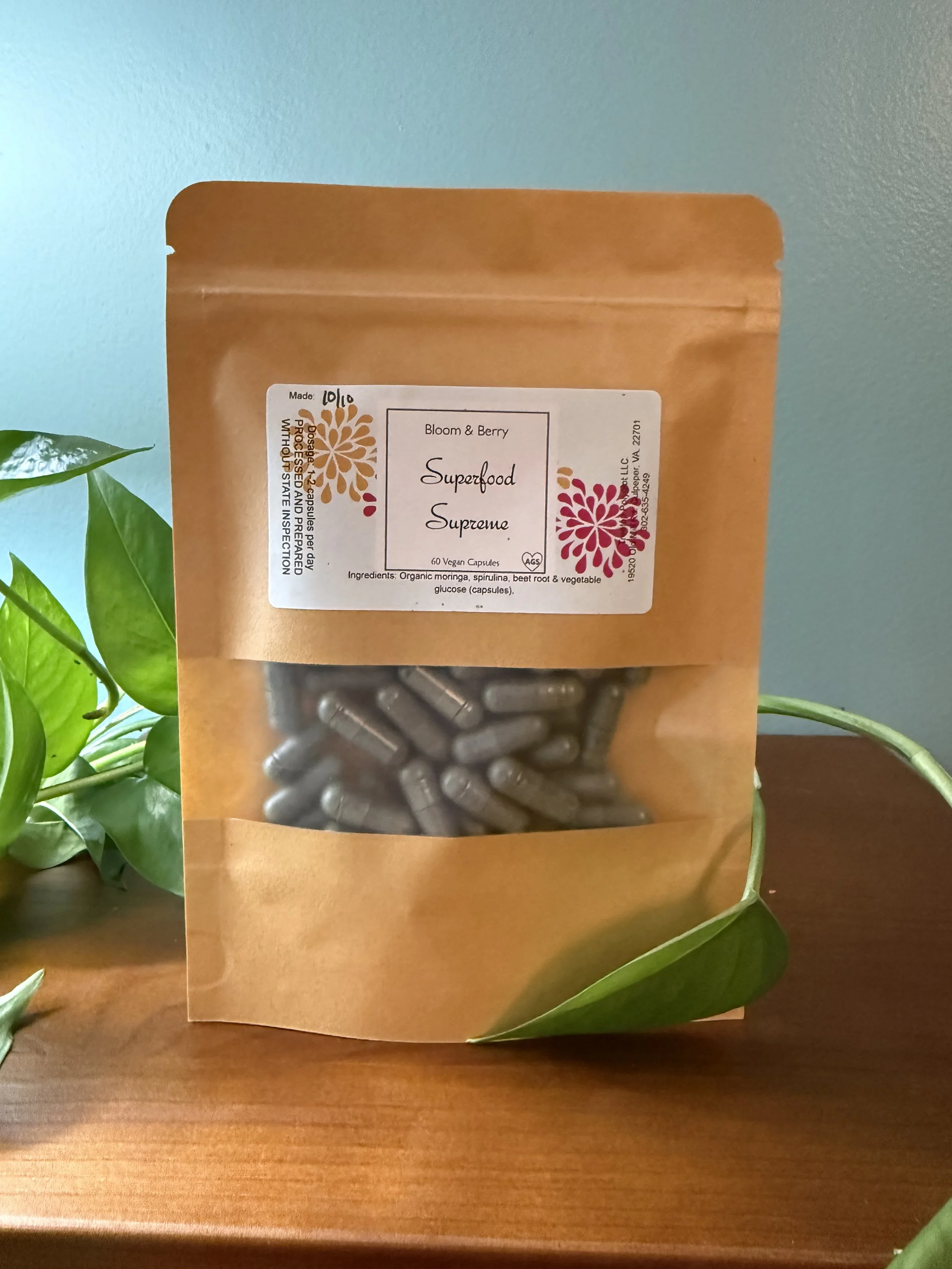Comparative Profile of Three Superfoods: Moringa, Spirulina, and Beetroot
This document outlines the nutritional and therapeutic benefits of three highly valued natural food sources: Moringa, Spirulina, and Beetroot.
Moringa: The "Miracle Tree" (Moringa oleifera)
Moringa is frequently lauded as the "Miracle Tree" due to its exceptional nutritional and medicinal composition. Its leaves are a nutritional powerhouse, dense in essential vitamins (A, C, and E), critical minerals (calcium, iron, and potassium), and plant-based protein.
Key health benefits derived from its bioactive compounds include:
Antioxidant and Anti-inflammatory Action: It is rich in antioxidants that protect cells from damage caused by free radicals, combating oxidative stress. Bioactive compounds also exhibit strong anti-inflammatory effects.
Metabolic and Cardiovascular Support: Preliminary research indicates that moringa may help stabilize blood sugar levels and assist in managing both blood pressure and cholesterol, thereby supporting overall cardiovascular health.
Immunity and Energy: Its high concentration of vitamins and iron is instrumental in boosting the immune system and helping to mitigate fatigue.
Spirulina: Nutrient-Dense Algae
Spirulina, a blue-green algae, is highly regarded for its concentrated nutrient profile and potential therapeutic applications.
Its primary benefits stem from its density in macro and micronutrients:
Exceptional Nutritional Density: Spirulina is an excellent source of protein, B vitamins (B1, B2, B3), copper, and iron, providing a significant nutritional boost.
Potent Antioxidant: It contains the compound phycocyanin, which is responsible for its color and provides powerful antioxidant and anti-inflammatory effects.
Cardiovascular and Metabolic Management: Studies suggest spirulina can help improve blood cholesterol and triglyceride levels and potentially contribute to the reduction of high blood pressure. It is also thought to play a role in managing and lowering blood sugar levels.
Immune Modulation: It is recognized for its capacity to support and modulate healthy immune system functions.
Beetroot: Cardiovascular Powerhouse (Beta vulgaris)
Beetroot, a vibrant root vegetable, offers significant health advantages, particularly for cardiovascular and digestive health. Its deep red pigment is a marker for beneficial compounds:
Betalains and Anti-inflammatory Effects: The root's distinct color comes from betalains, a class of potent antioxidants that exhibit strong anti-inflammatory properties and help protect against chronic disease.
Cardiovascular Enhancement (Nitrate Content): Beetroot is notably rich in dietary nitrates. Upon consumption, these nitrates convert into nitric oxide, which acts to relax and widen blood vessels. This vasodilation effect directly contributes to:
Lowered blood pressure.
Improved athletic performance through increased blood flow, enhanced oxygen use, and greater endurance.
Digestive and Nutritional Support: As an excellent source of fiber, beetroot promotes healthy digestion and regularity. It also provides a valuable intake of essential micronutrients, including folate and potassium.
